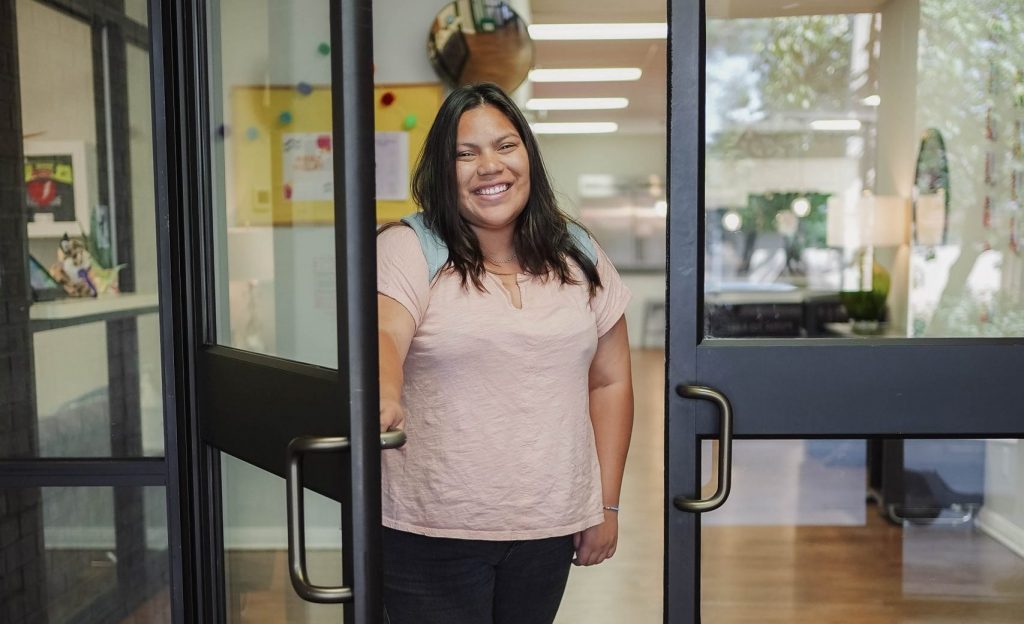More than 3,000 miles from home. More than 3,000 miles from everything you know; just let that sink in. That’s how far Claudia Panta Santos traveled from her home in Lima, Peru, to the small town of Abilene, Texas.
Can’t imagine yourself doing the same? Well, many can’t, and many don’t. Actually, only 4.6% of all U.S. university students are foreign-born like Claudia, and they face some special challenges as international students.
While many college students are typically worried about waking up for class on time or finishing all their homework, international students tend to fear something that their American classmates don’t even think about – losing their visa.
“The first thing that you need to know, as an international student, is that you need to maintain a good standing with your entity,” Claudia said while remembering the extensive visa application process. “There are many things that can put you at risk of losing your visa, and ultimately, many things that can get you deported back home.”
One of those risk factors is one’s inability to follow the federal government’s regulations placed on students coming to the U.S. strictly for educational purposes. Foreign-born people have to choose the specific reason they are visiting the U.S. long-term when applying for a visa, and they must follow special rules for employment
Crystal Cox, assistant director of human resources, explained that international students can only work for their specific institution, or entity. And when school’s in session, they can only work 20 hours a week; going over that is not an option. These are federal laws, not just rules specific to ACU.
These stipulations may seem minute, but not for students in greater financial need. Sometimes, minimum wage and 20 hours of work a week simply aren’t enough.
“I honestly think that 20 hours should be the limit for any student,” Claudia said. “But, when you need the money, those limitations are very frustrating.”
Lucy Dawson, associate director of the office of international students and visiting scholars, said students have to show proof of sufficient financial support for their studies before they arrive in the United States. “ACU offers large scholarships for all international students,” she said.
She estimates that about two-thirds of all international students at ACU work on-campus. “Many have found creative ways to manage challenges with their finances,” Dawson said.
Such creative outlets may include: taking out a loan from an international student’s home country, selling land or other property back home, getting an internship over the summer, finding additional scholarships and sometimes taking a leave of absence to earn extra funds.
Or, if you’re Claudia, who is starting her second year working as a resident advisor, you figure out how to make the most of your on-campus job.
“Honestly, I feel like the job that Res Life offers, for the student body in general, is one of the best jobs that you can get [on campus],” she said. “Especially for an international student, when $7.25 an hour may not get you that far, but with Res Life, you are receiving housing, which is a big luxury.”
While Claudia is thankful for what Residence Life has done for her, the feeling is definitely a mutual one.
“Last year [Claudia] worked in a freshman hall, and this year, in a sophomore hall,” said Emily Berry, director of residence life operations. “She strongly desires to connect with people and make them feel seen, known and loved – it’s incredible.”
It is people like Claudia, who make these buildings on campus feel like home for so many students, for more than one reason.
“It’s really important to us that both our student staff and our professional staff reflect our student body,” Berry said. “We want to make sure that every single student on campus can find somebody in Residence Life that they can connect with.”
Claudia serves as exactly that for many in the residence halls, whether her own or otherwise.
“Last year, I had a student that I bonded with due to our international upbringing and the fact that we spoke the same language,” Claudia said. “I like being the person that people come to when they have questions that they may not be comfortable asking someone else.”
Whether you are Claudia, finding an on-campus job that feels like home – literally – or the Starbucks worker in the Brown Library, as an international student your presence on campus is making a difference in the lives of many.
“I love being here, even with the stipulations,” Claudia said. “I can’t imagine myself anywhere else.”

